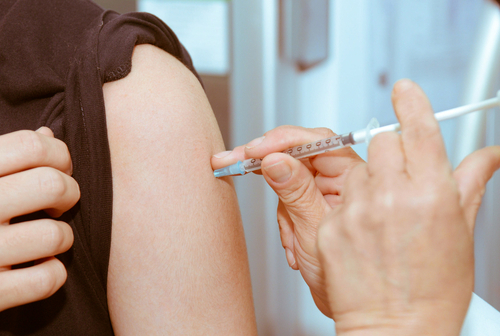
A bill was introduced in the U.S. House of Representatives that seeks to reverse the decrease in vaccination rates, which have plummeted during the COVID-19 pandemic.
The Community Immunity During COVID-19 Act (H.R. 8061) would make investments to evaluate and develop local initiatives to promote recommended vaccinations during this pandemic. The bill was introduced by Reps. Lauren Underwood (D-IL), Kim Schrier (D-WA), Kathy Castor (D-FL), and Ann McLane Kuster (D-NH).
The legislation also supports preparations for the coming COVID-19 vaccine, ensuring that immunization providers and local organizations can reach all community members, particularly underserved populations. Immunization rates for vaccines have fallen significantly during the pandemic as Americans have tried to avoid exposure to COVID-19, according to the Centers for Disease Control and Prevention (CDC). The CDC has issued guidance to encourage Americans to keep up with recommended immunization schedules during the public health emergency. With the flu season upon, the legislation seeks to make sure that people receive the vaccines they need.
“As flu season gets underway and the coronavirus continues to spread, we must take action now to address the alarming decline in immunization rates,” Underwood said. “I’m introducing the Community Immunity During COVID-19 Act to ensure that communities have the resources they need to avoid outbreaks of vaccine-preventable diseases, mitigate the severity of the seasonal flu as we continue to battle this pandemic, and prepare for a future COVID-19 vaccine. By investing in community-specific initiatives to increase immunization rates, we can help keep children, families, adults, and communities safe and protected during this pandemic.”
Specifically, this bill would provide $560 million to state and local public health departments to promote Advisory Committee on Immunization Practices-recommended vaccinations during the COVID-19 public health emergency through. Further, it would establish and strengthen partnerships with health care providers, schools, pharmacies, vaccine coalitions, and community-based organizations. In addition, it would promote vaccine counseling guidance for community immunization providers.
“As a pediatrician, I am concerned about the decrease in routine immunizations children have gotten during the pandemic,” Schrier said. “Part of this hesitation is due to misinformation. The Community Immunity During COVID-19 Act is similar to another bill we worked on together that I introduced during 2019 measles outbreaks, the VACCINES Act- that increases information from trusted sources about vaccines to improve immunization rates. This is especially important in the face of this pandemic. When we finally have a safe and effective vaccine for COVID-19, the Community Immunity During COVID-19 Act will ensure that we have a robust information campaign to get Americans to understand why they should get a COVID-19 vaccine. Immunizations protect us and our community as a whole.”




